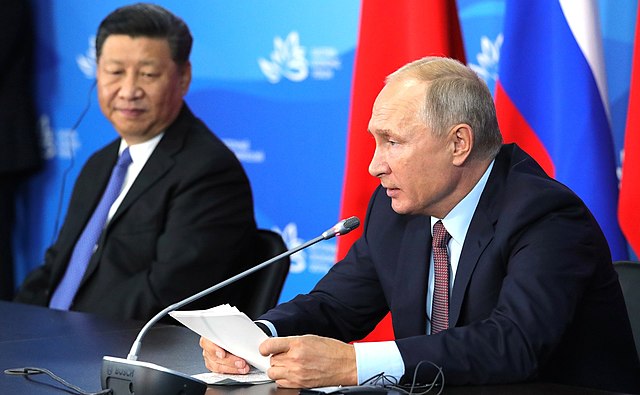
As we forge ever further into the 21st century, it has become rather obvious that a new shift is occurring in the global power structure, and not necessarily in the most benevolent of ways.
In the west, things aren’t transforming much. Despite Joe Biden’s lackadaisical leadership, the United States still sits atop the heap, guiding the world in ways that no other nation on the planet could in the modern age.
But in the East, where authoritarian rule continues to make inroads, a worrisome new alliance is beginning to form.
In the almost 1,000 days since Xi Jinping last ventured abroad, China has found itself increasingly isolated within the US-led world order. He’s finally reemerging this week alongside Russia’s Vladimir Putin to showcase his vision for a viable alternative.
Thursday, Xi and Putin will hold their first in-person meeting since Russia invaded Ukraine, according to the Kremlin, in a sign that Beijing sees the relationship as crucial to countering the US. It will occur on the sidelines of a Chinese-founded security forum in Uzbekistan that gathers countries ranging from India to Iran — a grouping that aims to accelerate the formation of a multipolar world.
Prior to that, Xi on Wednesday will stop in Kazakhstan, where he unveiled what would be become his signature Belt-and-Road trade-and-infrastructure plan nine years ago. That foreign-policy initiative has since become a focal point of the US and its allies in the Group of Seven, which in June announced plans to raise $600 billion in financing so lower-income countries have an alternative to Chinese cash.
There was but one true goal in all of this: Ween the world off of the United States’ influence.
“Xi Jinping is trying to reorient global affairs in a direction that de-centers Western institutions and promotes groupings and institutions that are more favorable to China’s interests and worldview,” said Trey McArver, co-founder of research firm Trivium China. Xi’s meeting with Putin, he added, “sends a very clear signal that China continues to tilt toward the side of Russia in that conflict.”
The idea of ceding any influence to China is an understandably fraught one, thanks in no small part to Beijing’s well-documented and ongoing human rights violations and their unflinching dedication to the tenets of tyranny.








